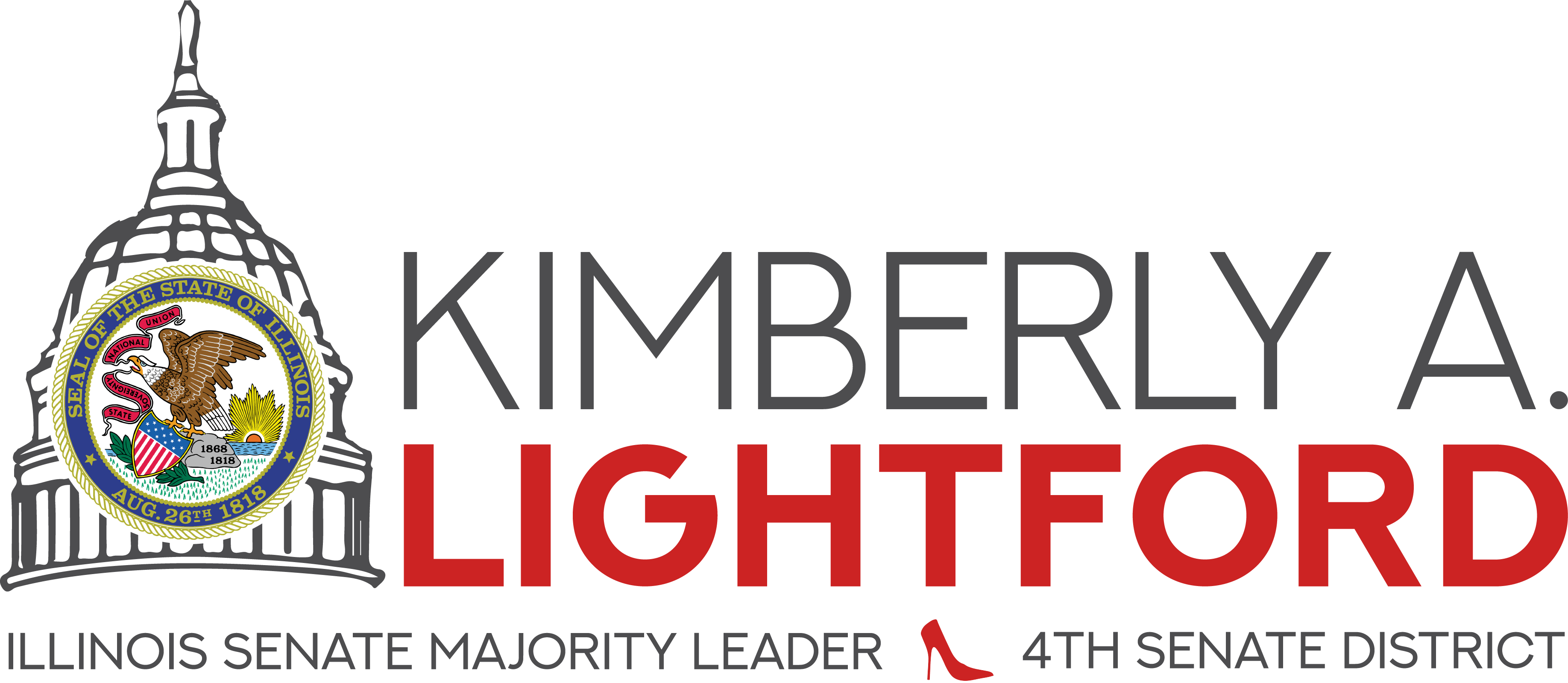CHICAGO—The Illinois Legislative Black Caucus laid out efforts to close the racial wealth gap that has long been perpetuated by systemic racism during a press conference on Thursday at Teamwork Englewood ahead of a scheduled Senate committee hearing on the issue.
The Black Caucus discussed their plans to develop meaningful legislation to eliminate barriers to economic access, equity and opportunity.
ILBC Chairman Kimberly A. Lightford (D-Maywood) said the Black Caucus is committed to eliminating all forms of economic oppression in Illinois.
“This country was built on the backs of our ancestors. Yet, centuries of discrimination and oppression continue to prevent African Americans from receiving a fair stake of their economic power and growth,” Lightford said. “Various systems were designed to prevent Black people from gaining the same level of financial success as our white counterparts. We must dismantle every form of systemic racism, so that Black Illinoisans will finally achieve the economic equity we have long worked and fought for.”
Economic access, equity and opportunity is the third of four policy pillars that are guiding the Black Caucus’ agenda ahead of veto session. The pillars are:
I. Criminal justice reform, violence reduction and police accountability
II. Education and workforce development
III. Economic access, equity and opportunity
IV. Health care and human services
Rep. Sonya Harper (D-Chicago) is the chair of the House Economic Opportunity & Equity Committee. The press conference was held in her hometown of Englewood.
“Englewood is representative of so many Black communities across the state who have no equitable investments, or when the investment comes, it’s not meant for current residents to take advantage of,” Harper said. “At a time when organizations and resident are ready and working to rebuild and organize, our communities deserve the attention they need. Black people should no longer be considered or treated as a commodity or just a consumer, but an actual partner in the economic success of this country with equal and equitable access to all the state has to offer.”
Rep. Camille Lilly (D-Chicago) is the House ILBC chair and the chair of the House Financial Institutions Committee.
“Economic access and equity is critical to bridging the gap of racial inequality for Black Illinoisans. Ending the effects of centuries of oppression will take more than a hashtag. I am asking all of us to collaborate with my Black colleagues, friends, and neighbors,” said Lilly. “We will break the barriers that are prohibiting the increase of Black workers that hold meaningful decision-making positions at all levels in the private sector and in government. We will insist this progression ensures fair contracting for Black-owned businesses in government and the private sector. We will continue until no person in Illinois is denied economic access and equity due to their race and/or ethnicity.”
Senator Christopher Belt (D-Centreville) is the Senate ILBC Chair.
“For 401 years, there has been a glaring disparity in terms of economic opportunity, housing, access to capital and overall equity as it relates to Black people in America,” Belt said. “If America is ever going to actualize her full potential as the world's beacon of democracy, then we need to address domestic inequities. I think it is incumbent upon Illinois to lead the way.”
For Black communities and businesses to flourish, they need more resources said Rep. Meyers-Martin (D-Olympia Fields), a member of the House Economic Opportunity and Equity Committee.
“Recent consumer finance data from the Federal Reserve once again demonstrated the persistent economic inequality that Black Americans know all too well,” Meyers-Martin said. “Black Americans not only hold less wealth than their white counterparts, but they are systematically paid less. To close these gaps, we must expand access to economic capital for Black-owned small businesses and promote financial literacy so African Americans can escape exorbitant fees and predatory payday loan products that keep them from growing their wealth.”
Senator Jacqueline Collins (D-Chicago) is the chair of the Senate Financial Institutions Committee.
“This is what systemic racism looks like, and it is reminiscent of the notorious era of redlining, the racially discriminatory policy based on ‘a system of maps that rated neighborhoods according to their perceived stability,’” said Collins, who chairs the Senate Financial Institutions Committee. “Now is the time for transparency, equity, accountability and transformational change.”
Rep. Andre Thapedi (D-Chicago) stated the need to eliminate housing discrimination.
“Some people could legitimately make the argument that slavery was not abolished here in Illinois, but simply redesigned,” Thapedi said. “A land use system or any system for that matter cannot fail those who it was never designed to protect. Verifiable evidence of systemic discrimination of land use is why the Black Caucus will be filing legislation designed to eradicate blight, provide truly affordable clean and safe housing, ensure financing mechanisms are in place for Black people to buy land to build homes and businesses and to further provide home and business owners the support that they need to upgrade.”
Discrimination has plagued our institutions due to a lack of accountability said Rep. Kam Buckner (D-Chicago).
“We are demanding equal pay for equal work for Black workers. We are demanding fair housing and fair lending. We are demanding equitable access to capital for Black businesses,” state Buckner said. “For too long, Chicago has been held back by big banks that redline African Americans out of homes. For too long, Illinois has been held back by investors that refuse to finance Black entrepreneurs. For too long, Black workers have been discounted, disrespected, and undervalued in their workplaces. We will not tolerate discriminatory conduct and we will hold institutions that discriminate against Black workers, Black business owners, and Black families accountable.”
The caucus plans to have a series of hearings for each pillar. Five hearings have already been held on criminal justice reform and education. A virtual joint hearing of the Illinois Senate Commerce and Economic Opportunity, Executive, Financial Institutions, and Local Government Committees will follow the press conference at 3 p.m. on Thursday. It will focus specifically on affordable housing and land use policies. It can be viewed here: https://ilga.gov/senateaudvid.asp#. Blue Room Stream, a subscription-based service, will also stream the hearing.







